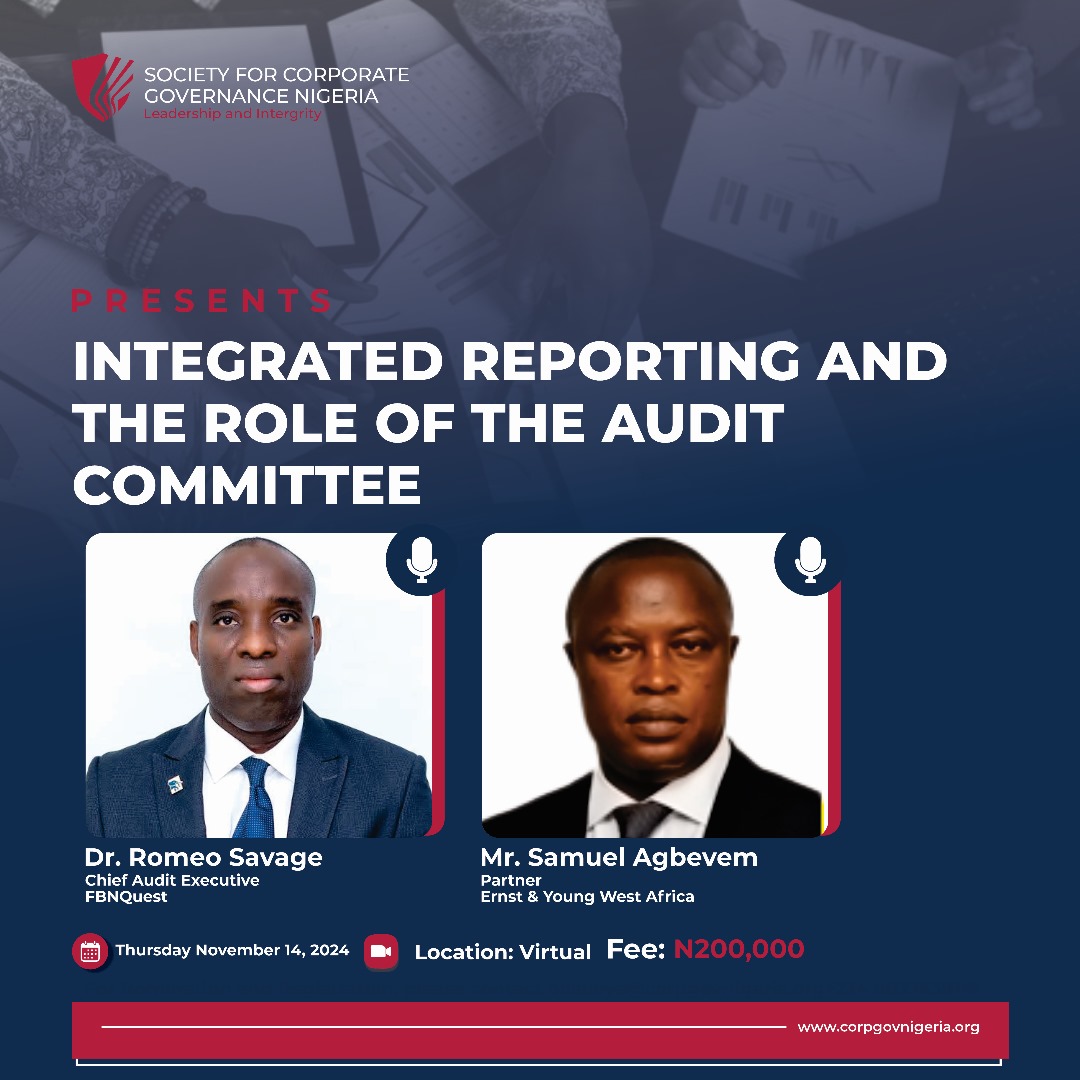
Integrated Reporting and The Role of the Audit Committee
Introduction
The rapidly evolving corporate landscape necessitates a more comprehensive approach to reporting that extends beyond traditional financial metrics. Integrated reporting has emerged as a pivotal tool in this regard, enabling organisations to convey a holistic view of their value creation process. For audit
committee members, understanding and implementing integrated reporting is crucial for ensuring transparency, accuracy, and stakeholder trust. This training session aims to equip audit committee members with the knowledge and skills required to effectively oversee integrated reporting within their organizations.
Training Objectives
The objectives of the training include but are not limited to the following:
➢ Equip participants with a clear understanding of integrated reporting and its advantages over traditional financial reporting.
➢ Enable audit committee members to effectively oversee the integrated reporting process, ensuring accuracy, transparency, and completeness.
➢ Provide tools and techniques to identify, assess, and mitigate risks associated with integrated reporting.
➢ Highlight the importance of engaging with stakeholders and provide strategies for effective communication in the integrated reporting process.
➢ Update participants on emerging trends and regulatory developments in integrated reporting, and clarify the audit committee’s role in these contexts.
Session 1: Understanding Integrated Reporting
➢ Overview of Integrated Reporting Vs Traditional Financial Reporting
➢ The International Integrated Reporting Council (IIRC) and the Framework.
➢ Key Components of an Integrated Report and their presentation to ensure a holistic view of the organisation’s value creation process.
➢ Emerging trends and regulatory developments in integrated reporting
➢ Benefits of Integrated Reporting
➢ Case Studies and Best Practices
Session 2:
The Role of the Audit Committee in Integrated Reporting
➢ Overview of the Audit Committee’s role in governance and oversight as related to integrated reporting
➢ Evaluating the effectiveness of internal controls related to integrated reporting.
➢ Understanding the risk landscape and how it impacts reporting.
➢ Approaches to reviewing and challenging the integrated report.
➢ Engaging with internal and external auditors to obtain assurance on the integrated report.
➢ Understanding the scope and limitations of assurance on non-financial information.
➢ Importance of stakeholder engagement in the integrated reporting process.
Training Details:
Date: Thursday, November 14, 2024
Venue: Virtual
Time: 10:00 am
Training Fee: Individual: NGN 200, 000 (Two Hundred Thousand Naira Only)
Organisation: For a group of 3 or more, a discount of 10% on the fee.
Who should Attend
➢ Board Audit Committee Members
➢ Board Members
➢ Auditors
➢ Chief Financial Officer